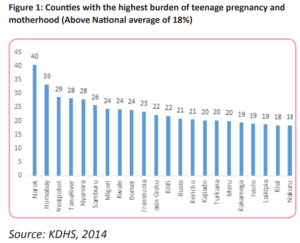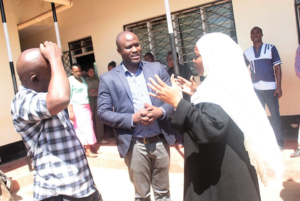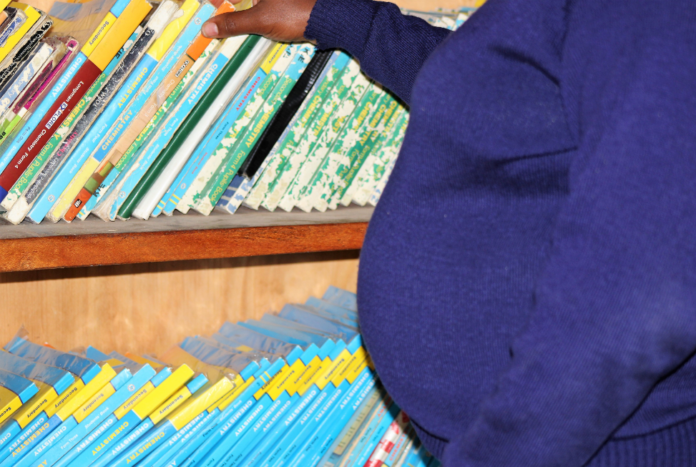By Winnie Kamau
A worrying trend is now emerging in Kwale County, teenage boys are impregnating their fellow teenage girls and escaping their responsibilities.
This trend has been attributed to sexual violence, sexual exploitation or boy-girlfriend relationships.
Teenage girls are left with a heavy burden of taking care of babies without any support from the fathers.
When the sexual offenses act was passed in 2006, stiffer penalties were put under defilement, the penalties range from 10 to 20, years and life sentence which deterred such offenses. However,
 According to a Report by UNFPA and Africa Institute for Development Policy (AIDP) shows that the teenage pregnancy and motherhood rate in Kenya stands at 18%. The Kenya Demographic and Health Survey (KDHS) report (2014) further indicates that teenage pregnancy and motherhood rates have remained unchanged since 2008, implying that many girls continue to drop out of school, while others continue to experience health-related challenges including mortality and morbidity due to birth-related complications and unsafe abortion and are in some instances forced into early marriages.
According to a Report by UNFPA and Africa Institute for Development Policy (AIDP) shows that the teenage pregnancy and motherhood rate in Kenya stands at 18%. The Kenya Demographic and Health Survey (KDHS) report (2014) further indicates that teenage pregnancy and motherhood rates have remained unchanged since 2008, implying that many girls continue to drop out of school, while others continue to experience health-related challenges including mortality and morbidity due to birth-related complications and unsafe abortion and are in some instances forced into early marriages.
20 stakeholder organizations convened in Kinango to review the status of enforcement of the laws against a child, early and forced marriage owing to the fact that most teen mums who are victims and survivors of sexual violence and exploitation end up as child brides.
The stakeholders in Kwale are now advocating for contraceptives and youth-friendly clinics for Sexual Reproductive Health Rights. They are also seeking more awareness for parents on children rights so that the affected girls can be supported to re-enroll in schools and provided with psycho-social support as well. There is also a need to intensify comprehensive sexuality education in schools, advocacy with the national and county governments.

As Magistrates approach such cases cautiously noting that the boys are also underage experts have warned having laws in place deters would be perpetrators and ensures access to justice but the laws alone cannot solve Kwale’s problem.
“Having a law against child marriage and sexual violence against children is a good step but the Government should invest in social services that ensure that vulnerable children such as pregnant teenagers are able to access basic and higher education.” Jean-Paul Murunga of Equality Now.
With the devolved system of government, primary and secondary school education falls within the national government mandate and most of the girls affected are in primary and secondary school, yet the national government has not invested in social services to protect these girls.
Jean-Paul also noted that “Something needs to be done urgently since County governments claim that they are only responsible for ECDE and tertiary education. Some counties such as Kwale have provided some support to these girls to attend schools but the gap is still too wide.”
Reports indicate Teenage pregnancy resulting from early sexual debut by the adolescents in Kwale county stands at 24% compared to other Counties with child marriage and sexual violence against girls becoming rampant hence hindering the girl child from accessing education.














